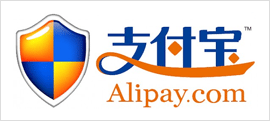
Going back to my discussions in Asia last week, I am intrigued by the results of the interactive voting we performed.
I asked a number of questions last week, and have already blogged about one of them:
Do you agree that innovation can only be delivered by a CEO or equivalent mandate?
- Yes – 49%
- No – 51%
Considering the audience were Asian CEO’s or equivalents, that one is quite telling. I disagree with this view, and believe you have to have the line of business owners’ mandate to change or otherwise it will be constrained.
However, let’s look at one of the other ones:
PayPal has been the only real disruptive innovation over the past decade, do you believe there are others out there and should they concern us?
- Yes, and they are serious threats – 42%
- Yes, but they are not serious threats – 27%
- No, disruption has happened already and will wipe out parts of our business – 24%
- No, I have no worries about disruption – 7%
This poll reflects the old mantra that Only the Paranoid Survive, as coined by Andy Groves of Intel.
What worries me here is that a third of the audience are not paranoid. Are they complacent?
And the other two thirds, what are the threats they worry about and what do they mean?
I managed to ask the audience to clarify a little and one bright spark said that the disruptors in Asia were people like Alipay.

Alipay is China’s PayPal and was part of Alibaba, the largest online commerce group in China, until it was hived off without board approval in order to keep it out of the hands of Yahoo.
This dispute has rumbled on for a while now, as Alipay was transferred into the ownership of CEO Jack Ma last year, without the agreement of 40 percent Alibaba shareowner Yahoo, whilst 30 percent owner Softbank has been playing hardball over the whole deal.
It looks like some agreement is being made now, but what is the real deal here?
The real deal is over China’s PayPal and the fact that it dominates online payments with every other cent exchanged over the internet made through the payments service. As of December 2010, Alipay had more than 550 million registered users and facilitated around 8.5 million transactions daily.
The service is the key service recommended by Alibaba, and by Taobao.
Alibaba.com is a global leader in e-commerce with an online business community of more than 65 million registered users from more than 240 countries and regions; whilst Taobao is China's largest online retail website and one-stop platform for shopping, socialising and information sharing, with over 800 million product listings and 370 million registered users
In addition to Taobao and Alibaba.com, Alipay provides payment solutions in China for more than 500,000 external merchants for online retail, virtual gaming, digital communications, commercial services, air ticketing and utilities fee payment transactions.
In July 2010, Alipay was processing about RMB 1.4 billion a day, which is over US$ 200 million a day or near $80 billion of transactions for the year 2010.
Hmmm … PayPal processed $92 billion in transactions in 2010 so it’s serious stuff.
As is Tenpay and QQ which I’ve referred to before.
So there are serious threats out there, and some have happened and some are emerging, such as Facebook Credits.
Maybe this is why 78% of the audience voted that innovation in banking is critical (38%) or important (40%) for banking today. 20% said it was required, and only 2% thought innovation irrelevant.
Equally and more stunningly, 88% of the audience thought that innovation would be more important for banks in the future and no-one thought it would be less important.
So, is innovation a good thing to pursue in banking?
Of course it is.
Oh, and just noticed this from the O'Reilly Radar:
China's AliPay develops barcode payment system
China's search engine giant, Alibaba, has launched a barcode-based mobile payment system for paying for real-world goods. Alibaba's payment subsidiary, Alipay, isn't waiting for near-field communications (NFC), and has developed an app on iOS, Android, and Nokia platforms. Similar to the well-knownStarbucks app in the U.S., Alipay generates a unique barcode that merchants can scan with a barcode reader or their own smartphone camera. The system draw funds from a user's credit card or a prepaid AliPay account.
Like everything in China, the opportunity is tremendous. There's more than 420 million Internet users, including some portion that spent 400 billion yuan ($62 billion U.S.) online in the first quarter of 2010. Within this market, AliPay (which some U.S. readers may know as the subsidiary that was spun off from Alibaba without notifying key investors Yahoo and Softbank) held 45.5% of the market for online payments in China in 2010, followed by number two player Ten Pay. Earlier this year, AliPay announced that, having signed up 200 million users, it has more registered users than PayPal.
Chris M Skinner
Chris Skinner is best known as an independent commentator on the financial markets through his blog, TheFinanser.com, as author of the bestselling book Digital Bank, and Chair of the European networking forum the Financial Services Club. He has been voted one of the most influential people in banking by The Financial Brand (as well as one of the best blogs), a FinTech Titan (Next Bank), one of the Fintech Leaders you need to follow (City AM, Deluxe and Jax Finance), as well as one of the Top 40 most influential people in financial technology by the Wall Street Journal's Financial News. To learn more click here...

